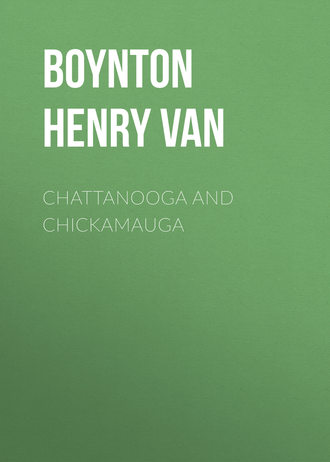 полная версия
полная версияChattanooga and Chickamauga
The authorities at Washington, to cover their own shortcomings and inexcusable neglect, chose to deepen the erroneous impression that the Army of the Cumberland had been routed and driven back to Chattanooga in confusion. The removal of General Rosecrans was determined upon. In fact, it had been only a question of opportunity since the campaign opened. There was only needed the misrepresentations about Chickamauga to furnish this.
In the mean time General Rosecrans thoroughly fortified Chattanooga and was actually engaged in preparations to open the river for supplies, exactly as it was afterwards done, when he was removed. In fact, his plan was partially perfected before he crossed the river, as is shown by the fact that he made written contracts with Northern firms to have bridges completed by October 1 for the Tennessee at Bridgeport, and the Running Water at Wauhatchie. He had ordered the thorough reconnoitering of the river bank opposite the north end of Missionary Ridge – where Sherman afterward crossed with a view of a flank attack there. It was, therefore, altogether fitting and proper that the order for his relief should arrive while he was absent making a personal examination of the vicinity of Brown's Ferry, where he intended to throw a bridge to unite with Hooker from Bridgeport and open the river exactly as was afterward done. He had even notified Harker of the plan three days before and ordered him to be ready to execute his part of it. General Thomas, at first, insisted that he would resign rather than appear to acquiesce in Rosecrans's removal by accepting the command. It was at Rosecrans's earnest solicitation that he reconsidered this determination. But he did not hesitate to say that the order was cruelly unjust. When General Garfield left for Washington soon after the battle he immediately charged him to do all he could to have Rosecrans righted. These will be new statements to most, but they are true.
The survivors of the Army of the Cumberland should awake to great pride in this notable field of Chickamauga. Why should it not, as well as Eastern fields, be marked by monuments, and its lines accurately preserved for history? There was no more magnificent fighting during the war than both armies did there. Both sides might well unite in preserving the field where both, in a military sense, won such renown.
H. V. B.

